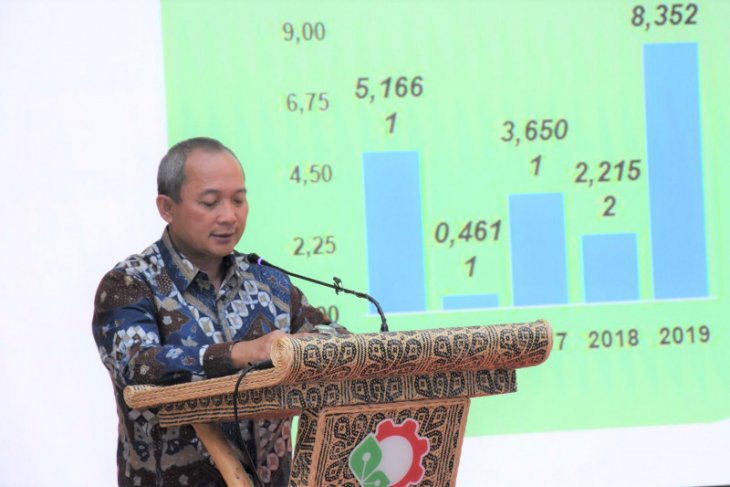Live Streaming
Program Highlight
Company Profile
Ministry Prescribes Circular Economy Route to Car Battery Development
Written by Ani Hasanah
Head of the Industry Research and Development Agency at the Ministry of Industry, Doddy Rahadi. (ANTARA/Industry Ministry Public Relations Bureau)
The Ministry of Industry is pushing for a circular economy approach in the development of domestic battery technology for supporting the national electric vehicle industry.
"Batteries are key components in electric vehicles, contributing to around 25 to 40 percent of their price," said the head of the Industry Research and Development Agency at the Ministry of Industry, Doddy Rahadi, in a statement received here on Thursday.
He made the statement at an online seminar on ‘2020 Material Technology and Engineering Goods’.
He said that electric vehicles use lithium-ion batteries with cathode active ingredients, including the elements lithium, nickel, cobalt, manganese, and aluminum. The cathode itself accounts for about 34 percent of the price of lithium battery cells.
The ministry is encouraging the processing of materials domestically to allow more economical pricing, considering Indonesia possesses abundant natural resources that can be used as active ingredients, Rahadi said.
The Ministry of Industry is trying to promote import-substitution in the energy sector by making NMC-based active cathode materials (nickel-manganese-cobalt), wherein the process of making these active materials uses Indonesian smelter industrial products. However, the import-substitution process for cathode active materials has faced problems, including sourcing of lithium, he informed.
Rahadi said Indonesia does not have natural sources of lithium and in order to overcome this problem, the Ministry of Industry has initiated a lithium recovery process from recycled used batteries. The process of recovering lithium from used batteries is also known as urban mining.
Research related to urban mining is very reliable, and developed countries are no exception, he pointed out. In producing countries, urban mining is being used as a solution to maintain sustainable production, he informed. With this innovation, Indonesia will be able to have lithium reserves even though it has no natural lithium sources, he said.
"This effort is also a form of a circular economy in the energy sector, especially electric vehicles," he remarked.
He further said that the government's seriousness in developing battery-based electric motorized vehicles is reflected by the signing of Presidential Regulation (Perpres) Number 55 of 2019 concerning the Acceleration of Electric Motor Vehicles Development.
The presidential decree can serve as the basis for automotive industry players in Indonesia to immediately compile a design for the development of electric cars.
"The government is targeting that in 2025, around 25 percent, or 400 thousand units of Low Carbon Emission Vehicles (LCEV), will be in the Indonesian market," Rahadi added.
To encourage the development of domestic electric vehicle batteries, efforts are needed to utilize existing natural resources as well as substitute imported battery components, which can be supported by the down-streaming of the lithium battery industry, he emphasized.
It is now a challenge for academics, industry players, government, researchers, engineers, and domestic associations to materialize such a concept, he said. (ANTARA)



